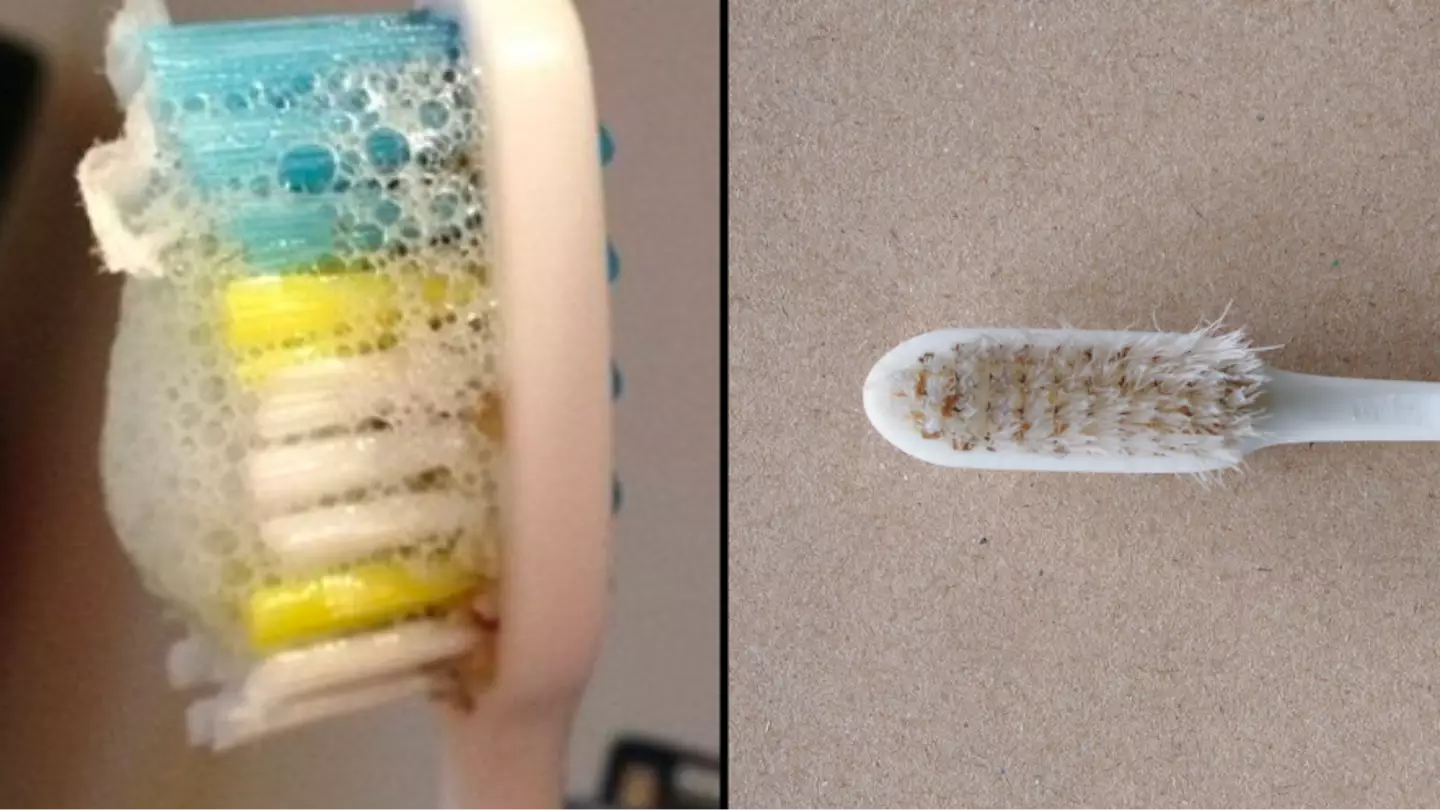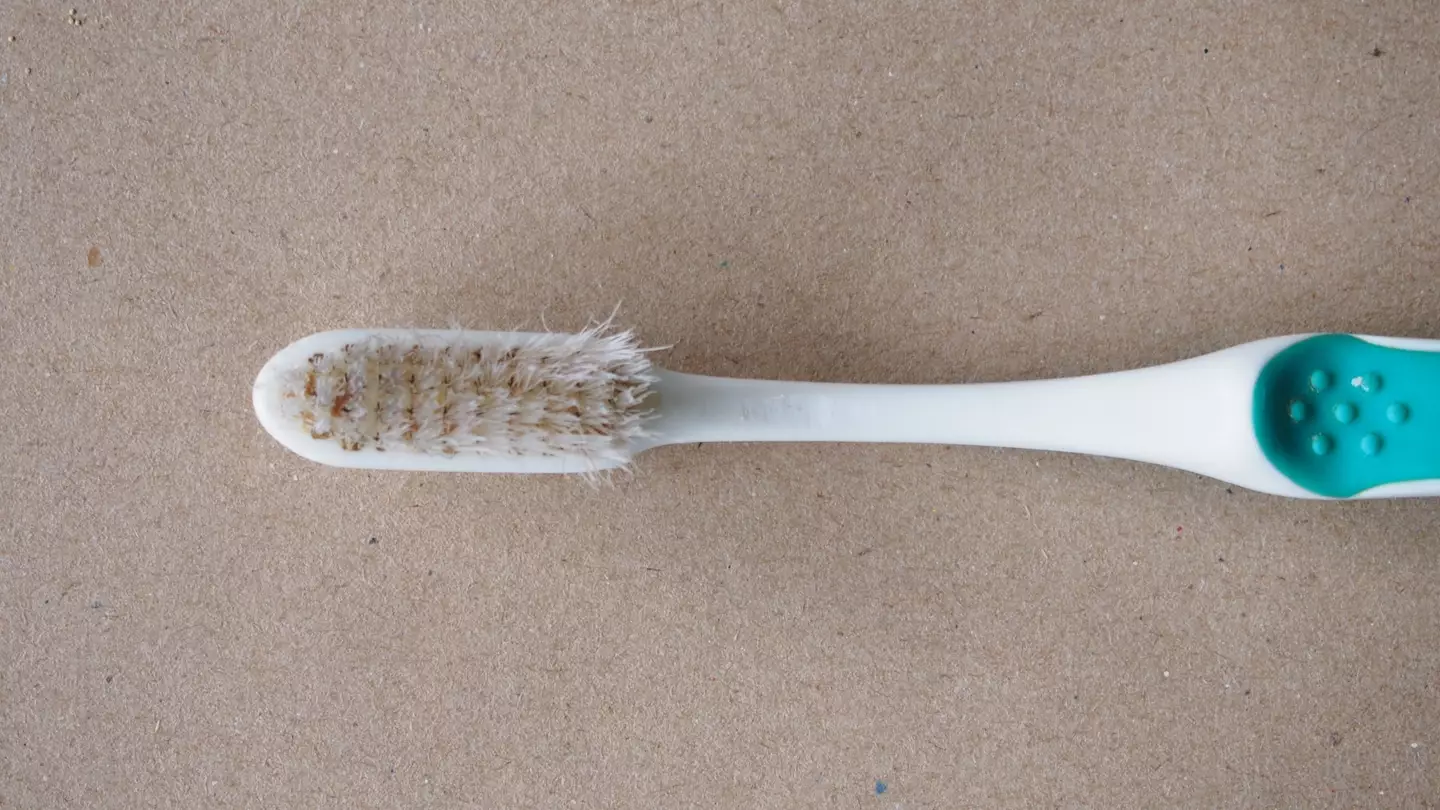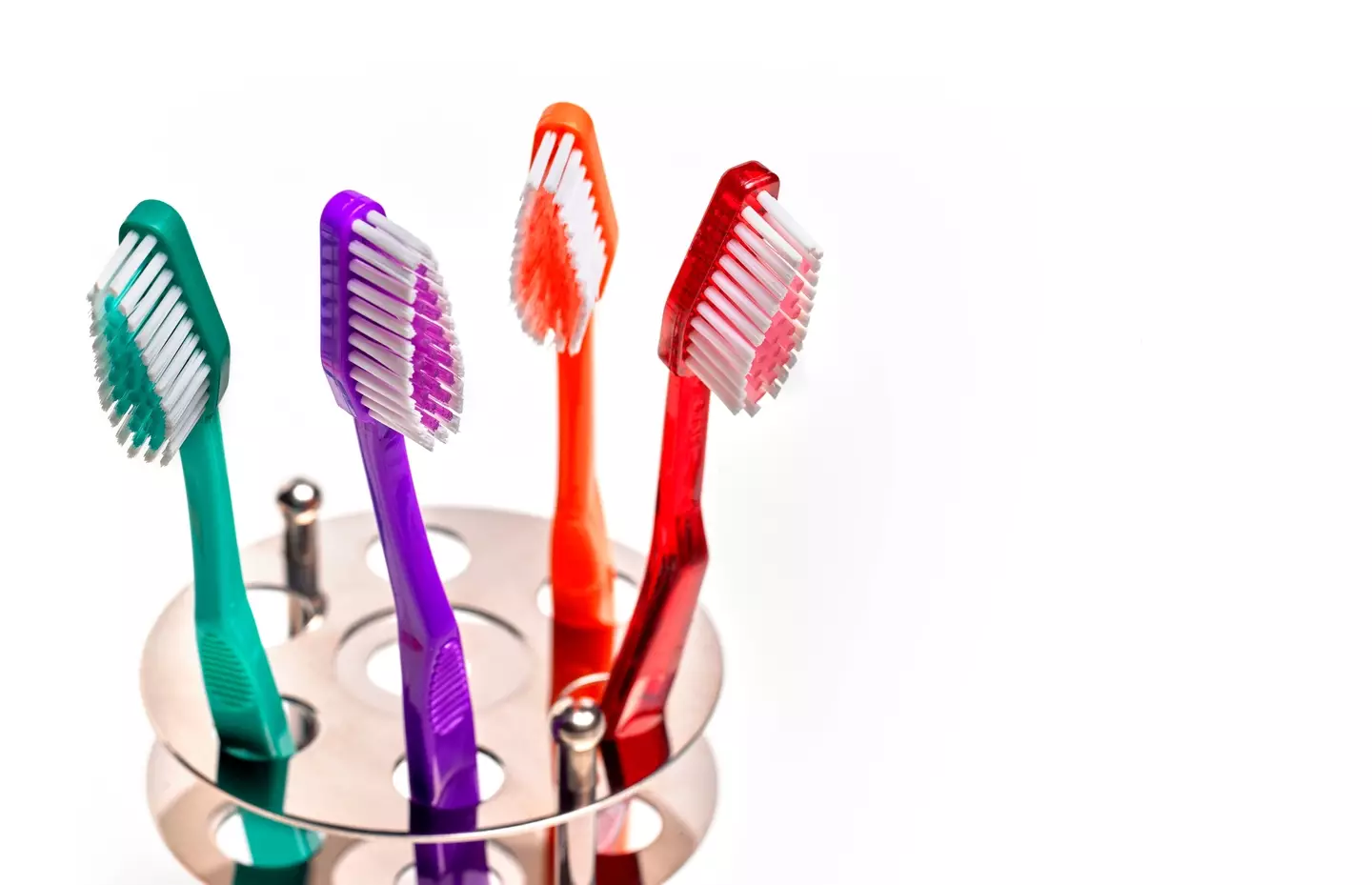
As if we need more of the stuff taking over our homes, we've now got to worry about mould infiltrating our toothbrushes.
Yep, you read that right - the furry fungi that thrive in moist, warm conditions are also targeting the bristles of our teeth-cleaning equipment.
Several doctors have spoken out about the silent epidemic, which could be happening right under your nose, as it seems people have forgotten that their bathrooms are prime candidates for mould to set up camp.
Dr Ellie Phillips is one of the medics concerned about the black stuff growing in between the bristles of your toothbrush, and she warned that there is 'only way to get rid of' it:
Advert
The preventive dentist from Austin, Texas, is on a mission to help people 'avoid unnecessary dental treatments' and regularly shares her top tips for achieving great oral health on TikTok.
She has over 40 years of experience as a practising dentist and is a Founding Member of the American Academy For Oral Systemic Health (AAOSH), so she knows her stuff.
One of her recent videos caught the eye of social media users, as it showed Dr Ellie explaining that we all need to do this routine with our toothbrushes daily to 'help you have the best oral health possible'.

She explained: "Many people are fully aware now of how dangerous mould can be. You may be working to get rid of mould in your house and certain areas under and around your bathroom.
"But one of the places that people forget is their toothbrush. Toothbrushes get really dirty - especially when they're close to a toilet and in a damp climate where there is humidity...in your bathroom.
"Humidity is the worst thing for growing mould and actually allows harmful bacteria to multiply inside the bristles.
"Around the deeper parts of the bristles in your toothbrush. This is why it's so important - you can't wash these bristles well enough, you can't dip them in hot water and try to boil them."
Dubbing the grim stuff 'bio foam bacteria' - which loosely refers to biological or biologically derived foams, like the scum which forms on activated sludge plants - Dr Ellie said there is only one solution to get rid of it.

She continued: "Dry your toothbrush for 24 hours. So get your toothbrush, put it somewhere in a cup so that it can air dry and has plenty of air. If your bathroom is always being used by other people or is always damp - certainly don't leave your toothbrush in there.
"Take it somewhere, put it in your bedroom, put it in your kitchen, put it somewhere in the window where it can dry in the sunshine," she added.
You may be wondering how to clean your teeth when the residue from your morning scrub is still drying on the windowsill, but Dr Ellie has a simple suggestion.
She added: "Use one toothbrush in the evening and a different toothbrush in the morning so it has 24 hours before you're going to use it again."
Other dentists and health practitioners have also encouraged people to use bottomless toothbrush holders to stop mould and all different sorts of crap accumulating at the bottom.

In addition to this advice, it is also said that people who use toothbrush covers are just asking for trouble.
Because people often shove the plastic caps on while the bristles are still soaking wet, there is a high chance mould will grow - so make sure you've dried it off as best you can in future if you still plan to use one.
We already know mould causes dire health problems, such as allergic reactions and respiratory issues, but even if you accidentally ingest a small amount, it shouldn't do you too much harm.
Professor Darin Detwiler, a food safety expert, told Prevention that people would most likely experience a slight gastrointestinal upset or no symptoms.
He explained: You would need a very under-developed immune system and to eat a ton of mold in order to get sick.
"Even that is not likely to kill you."